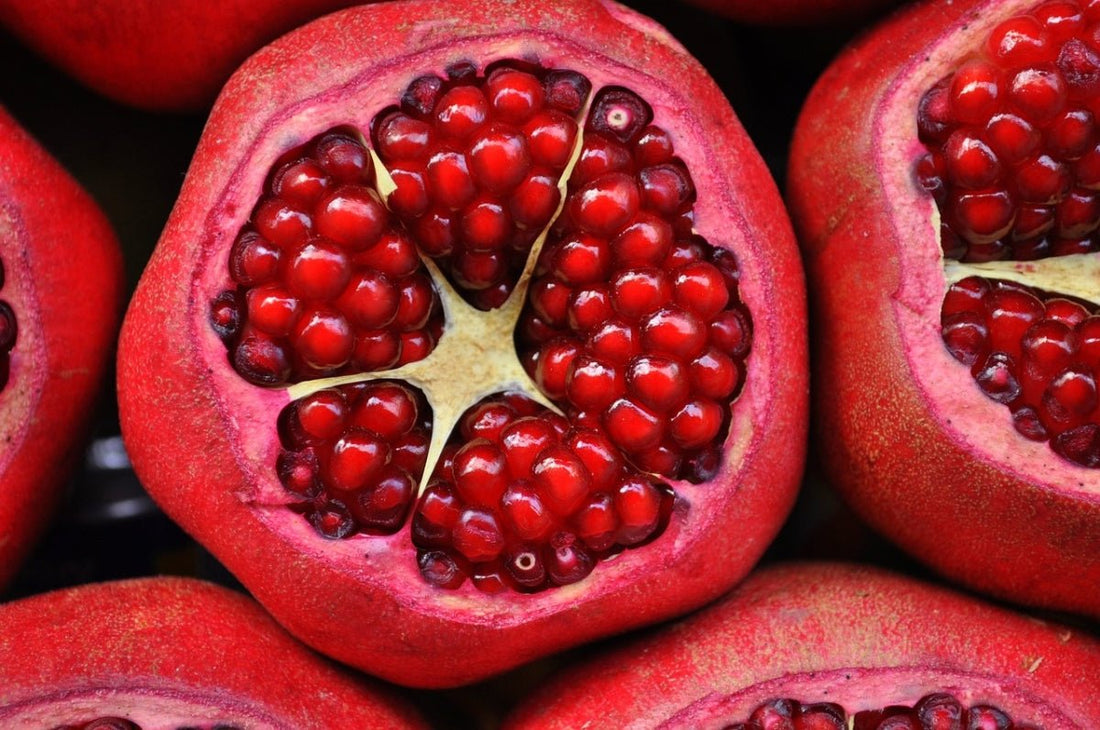
Discover 6 Top Foods for Hormonal Balance
Share
Maintaining hormonal balance is crucial for overall well-being, influencing various aspects of health, including mood, energy levels, metabolism, and reproductive health. While hormonal imbalances can arise from various factors such as stress, diet, and genetics, incorporating certain foods into your diet can help support hormonal equilibrium. In this blog, we'll explore six top foods known for their ability to promote hormonal balance.
Beetroot:
With its vibrant hue and earthy flavour, beetroot is more than just a colourful addition to salads; it's a powerhouse of nutrients beneficial for hormonal health. Rich in nitrates, antioxidants, and phytonutrients, beetroot offers a range of health benefits, including supporting hormonal balance.
Research studies have highlighted the potential of beetroot in positively influencing hormonal levels. A study found that dietary nitrate supplementation, as found in beetroot, can modulate hormonal responses during exercise, enhancing metabolic efficiency and overall performance.
Furthermore, the antioxidant properties of beetroot, particularly betalains, may help combat oxidative stress, which can disrupt hormonal balance. By reducing oxidative stress, beetroot supports the proper functioning of the endocrine system, which regulates hormone production and distribution throughout the body.
Incorporate beetroot into your diet by enjoying it raw in salads, juicing it for a refreshing drink, or roasting it as a nutritious side dish. Including beetroot in your meals can be a delicious way to support hormonal balance.
Salmon:
Rich in omega-3 fatty acids, vitamin D, and protein, salmon is an excellent choice for supporting hormonal health. Omega-3 fatty acids play a crucial role in hormone production and regulation, particularly in reducing inflammation and supporting brain health.
Studies have shown that omega-3 fatty acids can help regulate hormones such as insulin and leptin, which are involved in metabolism and appetite control. Additionally, the vitamin D content in salmon is essential for hormone synthesis and may contribute to mood regulation.
Incorporate salmon into your diet regularly to reap its hormonal balancing benefits. Grilled, baked, or pan-seared, salmon is a versatile and flavourful addition to any meal.
Avocado:
Creamy and nutrient-dense, avocados are packed with healthy fats, vitamins, and minerals that support hormonal balance. The monounsaturated fats in avocados help regulate cholesterol levels and support the production of hormones, including testosterone and estrogen.
Moreover, avocados are a good source of vitamin E, a potent antioxidant that protects cells from oxidative damage and supports overall hormonal health. Research suggests that vitamin E may play a role in modulating hormonal responses and reducing symptoms of hormonal imbalance.
Enjoy avocados sliced on toast, blended into smoothies, or added to salads for a delicious and hormone-balancing boost.
Pomegranate:
With its jewel-like arils bursting with flavour, is not only delicious but also offers numerous health benefits, including support for hormonal balance. Rich in antioxidants, particularly punicalagins and anthocyanins, pomegranate helps combat oxidative stress and inflammation, both of which can disrupt hormonal equilibrium.
Research suggests that pomegranate may have a positive impact on hormonal health. A study found that pomegranate extract supplementation positively influenced testosterone levels in men, potentially enhancing overall hormonal balance.
Additionally, pomegranate contains compounds that may support heart health, which is closely linked to hormonal balance. By promoting cardiovascular health, pomegranate contributes to overall well-being and hormonal equilibrium.
Incorporate pomegranate into your diet by enjoying the arils as a snack, adding them to salads, yogurt, or oatmeal, or drinking pomegranate juice. Including this vibrant fruit in your meals can be a delicious way to support hormonal balance and overall health.
Fermented Foods:
Fermented foods such as yogurt, kefir, kimchi, and sauerkraut are rich in probiotics, beneficial bacteria that support gut health and hormonal balance. The gut microbiota plays a crucial role in hormone metabolism and signaling, influencing various physiological processes.
Studies have shown that probiotics can help regulate hormone levels, improve insulin sensitivity, and reduce inflammation, thereby supporting hormonal balance. By promoting a healthy gut environment, fermented foods contribute to overall well-being and hormonal health.
Incorporate a variety of fermented foods into your diet to support your gut microbiota and hormonal balance. Enjoy yogurt with fruit for breakfast, include kimchi as a side dish, or sip on kefir for a nutritious snack.
Leafy Greens:
Leafy greens such as spinach, kale, and Swiss chard are nutrient powerhouses that support hormonal balance due to their high content of vitamins, minerals, and antioxidants. These vegetables are particularly rich in magnesium, a mineral involved in over 300 enzymatic reactions in the body, including hormone regulation.
Research suggests that magnesium plays a critical role in modulating hormone levels, particularly insulin and cortisol, which are involved in metabolism and stress response. By ensuring an adequate intake of magnesium-rich foods like leafy greens, you can support hormonal balance and overall health.
Incorporate leafy greens into your meals by adding them to salads, smoothies, stir-fries, or soups. Aim to include a variety of leafy greens in your diet regularly to reap their hormonal balancing benefits.
Achieving and maintaining hormonal balance is essential for overall health and well-being. While various factors can influence hormone levels, including stress, diet, and lifestyle, incorporating certain foods into your diet can support hormonal equilibrium.
We have done some of the work for you by incorporating some of these foods onto our superfood juices, to order yours visit our shop here today.




